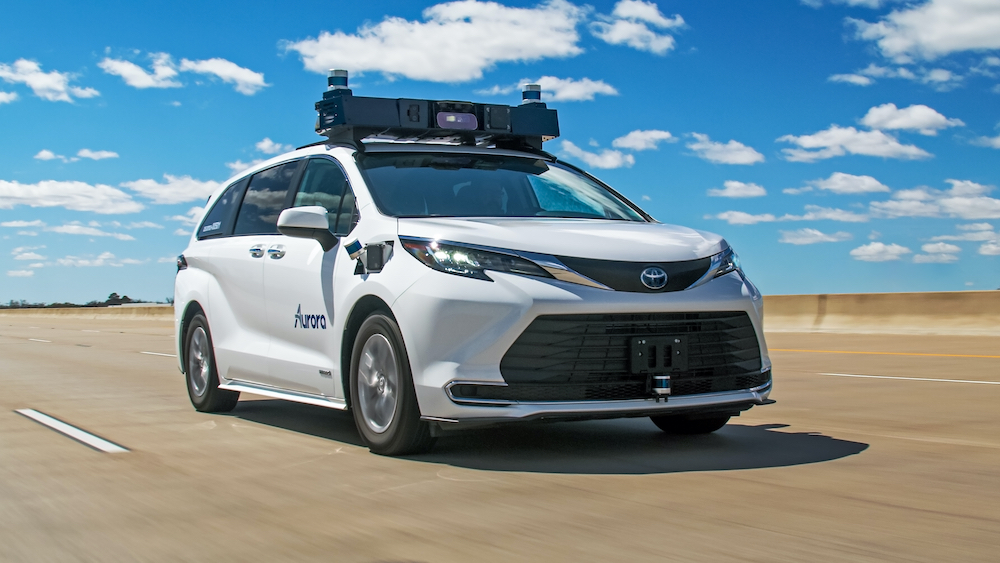As of last Thursday, House Bill 2398 has progressed through the Pennsylvania House and Senate was presented to Gov. Tom Wolf to await his approval. Should Wolf give the green light, HB 2398 would lift the requirement that autonomous vehicles, aka AVs, have a licensed human driver present when they’re being tested.
Although the legislation is still one signature away from being the law of the Commonwealth, a lot of folks in the autonomous vehicle industry are already counting it as a victory.
“Not only will this legislation deliver tremendous economic value to Pennsylvania, it will help maintain our region’s self-driving leadership, make roads safer, and enhance the efficiency of our supply chain,” Jake Martin, a spokesperson for AV company Aurora, told Technical.ly via email. “We’re grateful for the support that state legislators have shown for the homegrown autonomous vehicle industry here in Pittsburgh.”
From the legislative point of view, lawmakers and residents alike have approached the subject of AVs with emotions that ranged from curiosity to trepidation. Are they the natural next step in technological advancement, or could a driverless car on city streets be more trouble than it’s worth? What ethical concerns and business opportunities should the public be aware of?
The public is still erring on the side of caution on the topic of AVs, with a Pew Research Center poll conducted in 2022 showing that 44% of Americans feel driverless cars are a “bad idea.” But legislators have been slowly easing restrictions over the past few years, as the tech advances within local companies.
From Rep. Donna Oberlander’s perspective — she’s the bill’s sponsor — HB 2398 paves the way for the Commonwealth to take the lead in AV testing. For years, the AV industry has maintained a strong presence in the state due to the research conducted at companies and universities alike. Thus, it’d be a waste to allow other states — some of which do have similar laws on the books, like Arizona and California as of 2018 — to bypass Pennsylvania in development due to the safety driver requirement, Oberlander said in a statement.
I hope they’re able to grow their presence here in Pittsburgh faster and broader and deeper, which is going to mean more jobs and more tax revenue for the municipalities and the Commonwealth.Donald F. Smith RIDC
“The industry grew rapidly, and our Commonwealth was on the cutting edge, allowing for the testing of these vehicles while working on continued research and development,” she said.
Oberlander also noted that the AV industry could generate millions in revenue and thousands of jobs. After months of conversations with PennDOT, fellow lawmakers and AV industry stakeholders, she feels the bill balances supporting the industry and public safety.
“This bill strikes an important balance between the concerns and challenges, while keeping the safety of Pennsylvanians top of mind,” Oberlander said. “This legislation is a loud and clear message that Pennsylvania continues to support this industry and welcomes the continued growth in this technology sector.”
Similarly through the years from the now-defunct Argo AI to Motional in Pittsburgh, AV companies have expressed that although it’s important for the public to feel comfortable with AVs, the safety driver requirement was holding them back from discovering their vehicles’ full capabilities.
In addition to the safety issue another criticism of the bill came from labor unions and Senate Transportation Minority Chairman Marty Flynn who worried that the bill could cost workers, namely drivers, jobs down the line. However, Donald F. Smith, president of the Regional Industrial Development Corporation, argued that HB 2398 was a “pro worker” bill because many of the AV companies and the economic development orgs had moved testing out of state — which meant the jobs that go with AV testing didn’t go to Pennsylvanians.
“The drivers jobs, the technician jobs, the depot operators, the service jobs that go with the testing operations were being created in other states,” Smith said. “And so companies that are here in Pittsburgh are nonetheless testing in Ohio, or Indiana, or Arizona, or Florida. Not because they wanted to, but because they had to.”
Smith noted that because the trucking industry in PA currently has a driver shortage, he thinks self-driving cars and trucks wouldn’t be taking away jobs that companies were already finding it hard to fill. The successful deployment won’t replace jobs, he said, but expand capacity for companies to protect jobs in the long term.
Since AV testing is already happening in other states, it’s just a matter of deciding whether or not Pennsylvania should be allowed to reap the potential benefits, per Smith.
“I hope they’re able to grow their presence here in Pittsburgh faster and broader and deeper, which is going to mean more jobs and more tax revenue for the municipalities and the Commonwealth, as well as strengthening the regional operations of these companies,” he said.
The governor’s office told Technical.ly that Wolf is currently reviewing the legislation, and as of Oct. 27, he had 10 days to sign the bill into law.







